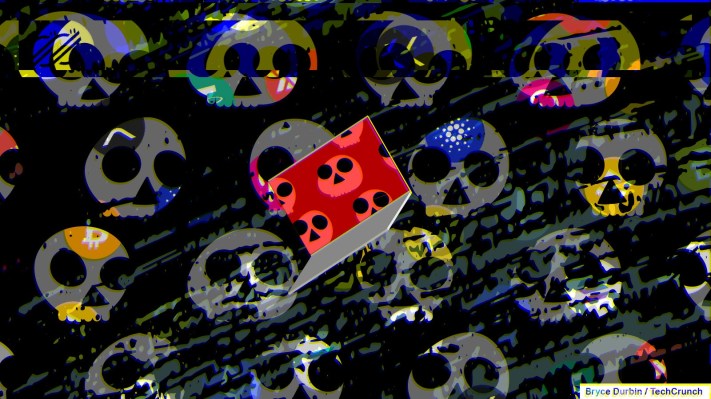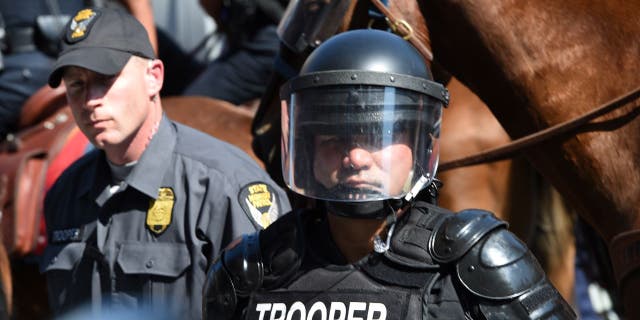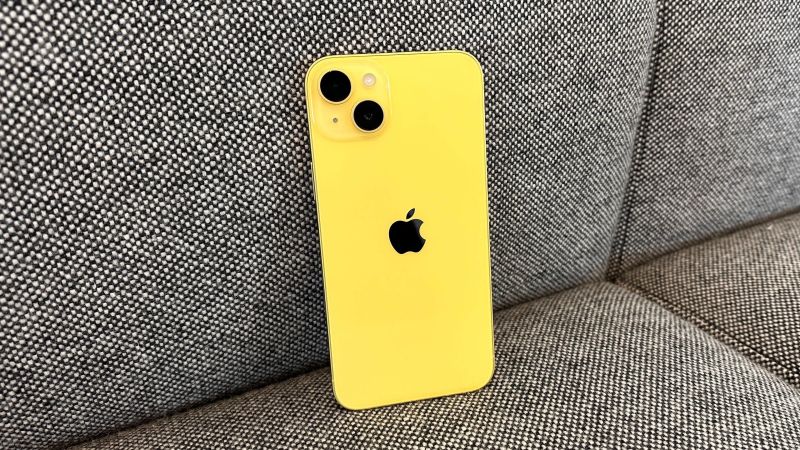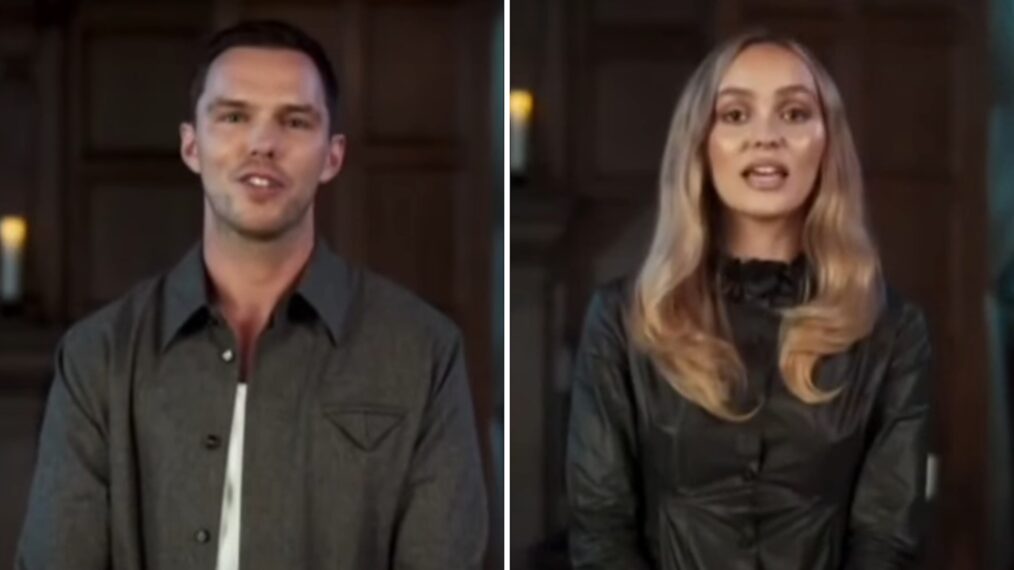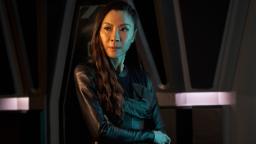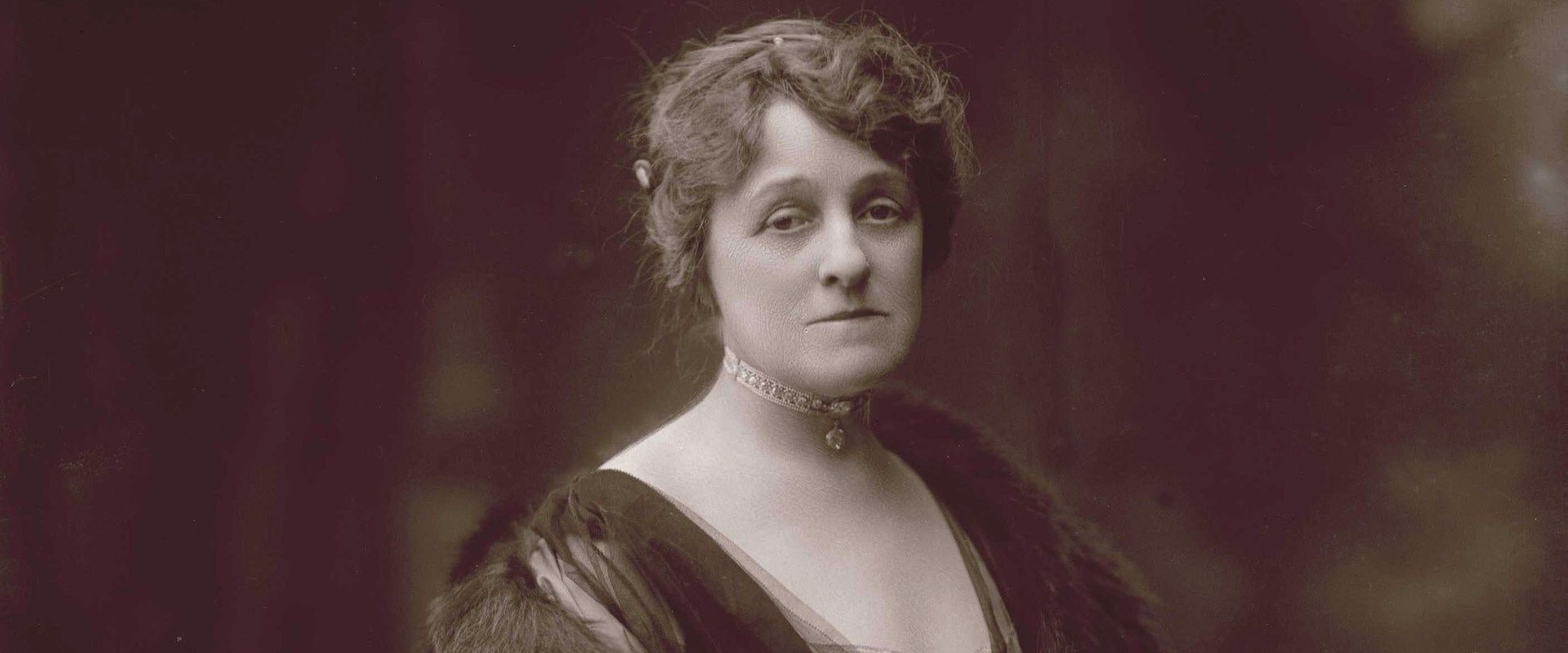For Ukranian-American actress Natalie Burn, growing up as a ballerina and going to ultra-competitive schools in Moscow and London was surprisingly effective training for surviving Hollywood.
“The competition is so brutal and you’re constantly getting rejected,” Burn says. “You have to have a very thick skin to not pay attention and just brush it off and go, ‘It’s okay.’ In the end, you’re doing it for you. That’s your dream. You’re basically saying, ‘No, I was born to do this, so I’m not gonna give up.’”
She’s appeared in films including Black Adam, Expendibles 3, The Enforcer and Mechanic: Resurrection, and now leads Til Death Do Us Part, a horror-action-comedy hybrid distributed by Cineverse that follows a uniquely skilled bride’s fight to stay alive after running away from her wedding. (Amid the ongoing WGA and SAG-AFTRA strikes, Til Death Do Us Part is not a struck film.)
The film from Final Destination creator Jeffrey Reddick, which Burn also produced, is directed by Timothy Woodward Jr. and stars an ensemble including Cam Gigandet, Jason Patric and Orlando Jones.
A few days before Til Death Do Us Part hit theaters on Aug. 4, Burn talked with The Hollywood Reporter about the road from Kyiv to Hollywood and the bittersweet feeling of releasing a film during the strikes.
How would you describe your Hollywood journey so far?
I think like everybody else’s journey, it’s been a bumpy road. I started as a dancer. When I was a ballerina, I got injured, unfortunately, and that’s when I started thinking about a career as an actress. I went to the American Academy of Dramatic Arts, a summer program, and I loved it. I decided to come back and I went to The Lee Strasburg Theater Institute and eventually The Actors Studio. Because I was a dancer, theater seemed natural for me. So, I actually was considering moving to New York and pursuing Broadway, but then I fell in love with Hollywood. It was difficult in the beginning because I didn’t have a green card. I didn’t have a work permit. I think anybody that comes in from outside understands how complicated it is to actually start working in Hollywood versus just being here and dreaming to do stuff. I think it was like 10 years for me to finally be here now. I get to work. I get to do what I love. Basically, I feel like my journey just started.
How old were you when you started dancing?
At 4 years old my mom took me to ballet because she wanted to fix my posture. I was born a month early, so I had a hunch on my back. She would touch my back and tell me, “Hey, straighten up.” She took me to ballet and was begging the teachers to fix my body. Nobody wanted to take me. I started getting a nickname of ugly duckling because I also had turned-in feet. Everybody was making fun of me. I had no natural ballet capabilities. I had to work really hard to stretch myself and finally do a frog position or go into a split. It was very, very difficult, but my mom was determined. She said, “You have to do it. You’re gonna thank me afterwards.” I’m definitely grateful because it developed my personality; the dedication and constantly going towards something and not giving up regardless of what people say around you.
That’s fascinating given how far you took ballet that you started from a place where your mom had a hard time even getting you into any classes.
It was pretty insane. They would just reject me and my mom literally had to talk to the principal and be like, “Please just take her in.” Then I ended up at this summer camp and they basically said, “If she survives this camp, if she’s okay, then we’ll take her.” I was like 6 years old. She put me on a bus and I kind of just left and didn’t know where I was going.
They were embarrassed of me. So they’d put me behind the piano. Throughout my whole life, I feel like I’ve always been pushed behind something at first. I remember doing some kind of caricature of ballet, and I was trying really hard to make it, but everybody was making fun of me. That was a very intense time. I was so young, but I still remember every single day because of the anxiety. I was always worried, but I really wanted to satisfy my mom and get to where she’d be proud of me. They shaved my head. They constantly would not give me food. They were beating me up — I didn’t tell her any of this.
My journey finally took off when I came back from that school. I remember my mom asked me, “How was it?” And I was like, “It was great.” I just kind of moved on and focused on trying to achieve the goals that she had planned for me. If she didn’t make it as a ballerina, I can do it. I went to the Bolshoi Academy, which is a huge thing in Russia. Once you get in there, the competition there is even worse. The teachers are very brutal.
Then The Royal Ballet School in London was tough because I didn’t speak English. Going to this amazing school that’s run by the royal family, everybody is very high class. Everybody speaks a certain language and has a certain upbringing. I was one of the first ever to get in who was a foreigner. And, again, my mom left me at the boarding school. And, again, I ended up behind the piano. My journey was constantly [starting] behind the piano and pushing myself to end up in the center and finally be given leading roles. Once I got injured, that’s when I was like, “Ok, I want to pursue the dream to become an actress.”
You were born in Kyiv, right?
I was born in Ukraine, yes. Kyiv. It’s sad what’s happening right now in Ukraine. I remember how beautiful the city itself is. I was 6 when I moved to Moscow and I only went back a few times. I grew up most of my life in London. I just remember how beautiful it was and it’s sad knowing that if I ever go back, the beautiful places that I used to go to are no longer there. It’s devastating.
Do you still have family there?
I do. I have my grandma on my mom’s side. When the war started, we were encouraging her to leave and she just said, “Hey, I lived through World War II, I can live through this one. I was born here, I’ll die here.” She just called me today, actually — every day she calls me, I’m grateful because I [know] she’s okay —and she was in panic like, “I’m sorry I didn’t call you yesterday.” I said, “What happened?” And she was like, “Well, when I was trying to dial you the siren came on and we had to go downstairs to hide in the bunker.” So, yeah, it’s pretty intense.
Wow. Let’s pivot to where you are now. How would you describe Til Death Do Us Part?
It’s a genre-bending film that we kind of decided to make for fun. If somebody likes horror, they can find a little bit of horror. If they love comedy, there’s a bit of comedy. If they love John Wick or Kill Bill, you can find those kind of tense fights in there, too.
It’s a bride who basically decides to run away from her wedding and goes to hide out in her dad’s house, and the groom gets pissed off and sends seven angry groomsmen to take her out. You find out they’re all assassins and the director, Timothy Woodward Jr., had an idea of taking those seven groomsmen and creating almost a Snow White-type thing and making every groomsman a character. So, it’s not your typical assassins that you see in a movie.
We took a bunch of things and just blended them. It’s interesting and it’s cool to find your own rhythm. Some people won’t understand. They’ll be like, “Oh, well, they don’t take it seriously.” But, that’s the idea. There’s so many serious things nowadays in the world. We just wanted to make somebody laugh. We wanted to create those outrageous situations and make fun of them.

Cam Gigandet and Natalie Burn in Til Death Do Us Part.
Cineverse
What was your favorite part of filming?
I loved the action parts. We had so much freedom. I worked with D.Y. Sao, who’s an amazing martial artist, and Arnold Chon, who came in as a stunt choreographer. We had this collaborative effort and started creating stuff on the go, and choreographing as we were doing it based on the location.
Working with Cam Gigandet was phenomenal. He was so much fun. We had this one scene that I absolutely love when I hold a knife against his throat. Of course, because it’s a totally indie production — we’re non-AMPTP — we had no time, no money. We were basically given 30 minutes to do this five-page dialogue scene while we’re doing action, holding knives and talking and fighting with each other.
It has to be really weird to have a movie coming out right now. What has that been like for you?
A little sad because I feel like as an indie production we haven’t been given enough information. We should have been separated a little bit from other productions and not compared to big blockbuster movies because we don’t have the same capabilities. We’re just trying to survive here. We’re just trying to make movies for the audience to entertain people and have fun while making it. And it’s a little bit devastating that we weren’t given complete guidance of what we can and cannot do. I feel like maybe they should have separated us and said, “Hey, if you are an indie production, you’re allowed to still to go and promote it, even as an actress, because you’ve done the work.” We’ve done the work and we’ve scrambled to put it together. We don’t have millions. We’re doing it because we love art. We’re doing it for ourselves. We’re doing it for the audience. It’s our dreams. It’s our work.
I’m in a tricky situation because I also produced the movie. So, I’m talking to you before anything as a producer. I support my union. I support my peers. I support SAG and I support everything that they’re going through right now. I stand with my union 100 percent, but I also have a movie that’s coming out on Aug. 4. And, as a producer, I’d love to talk to as many journalists as possible so that I can get at least some sort of recognition [because] we made this movie ourselves. I can’t completely shut it off right now [like] I don’t care about the financial outcome of this film because, you know, I’m not Jennifer Lawrence. So I’m just going out there and saying, “Hey, this is our little movie.” I’m overjoyed of how well this movie turned out. We had such a great crew and amazing cast behind it, and we should all be proud of it.
Interview edited for length and clarity.
















































